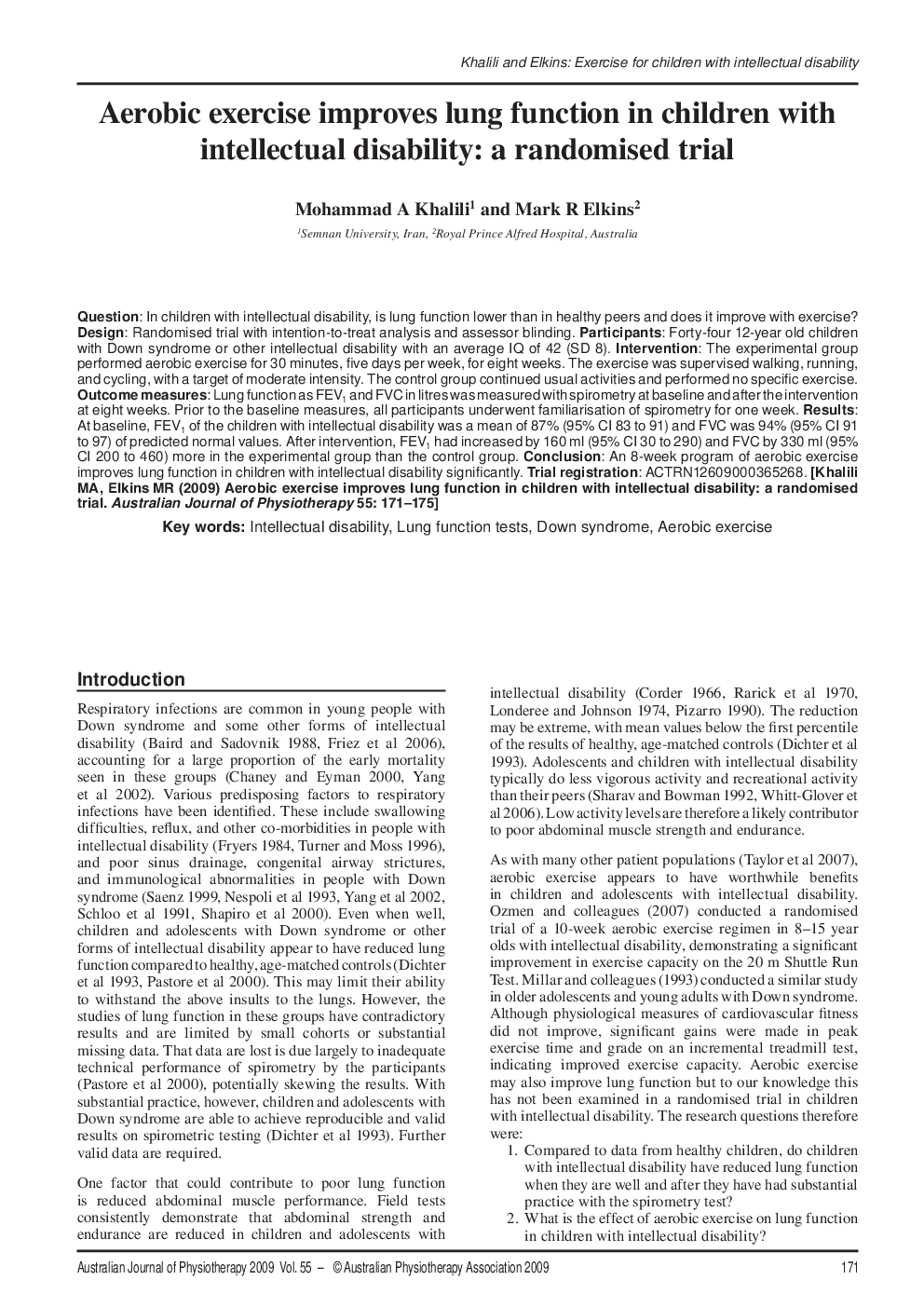| Article ID | Journal | Published Year | Pages | File Type |
|---|---|---|---|---|
| 2700902 | Australian Journal of Physiotherapy | 2009 | 5 Pages |
QuestionIn children with intellectual disability, is lung function lower than in healthy peers and does it improve with exercise?DesignRandomised trial with intention-to-treat analysis and assessor blinding.ParticipantsForty-four 12-year old children with Down syndrome or other intellectual disability with an average IQ of 42 (SD 8).InterventionThe experimental group performed aerobic exercise for 30 minutes, five days per week, for eight weeks. The exercise was supervised walking, running, and cycling, with a target of moderate intensity. The control group continued usual activities and performed no specific exercise.Outcome measuresLung function as FEV1 and FVC in litres was measured with spirometry at baseline and after the intervention at eight weeks. Prior to the baseline measures, all participants underwent familiarisation of spirometry for one week.ResultsAt baseline, FEV1 of the children with intellectual disability was a mean of 87% (95% CI 83 to 91) and FVC was 94% (95% CI 91 to 97) of predicted normal values. After intervention, FEV1 had increased by 160 ml (95% CI 30 to 290) and FVC by 330 ml (95% CI 200 to 460) more in the experimental group than the control group.ConclusionAn 8-week program of aerobic exercise improves lung function in children with intellectual disability significantly.
